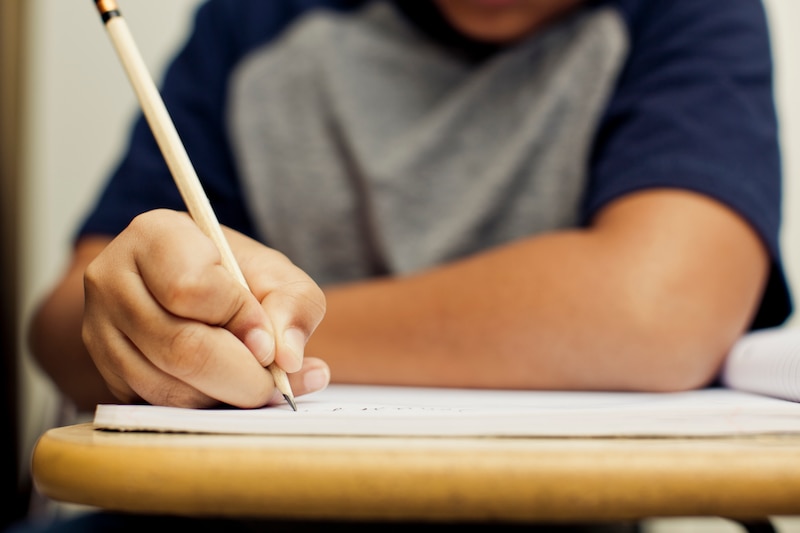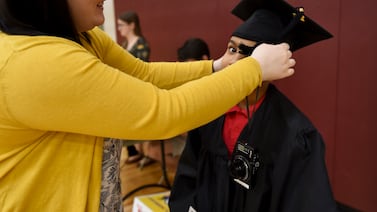Newark Public School officials gave a first look at how students fared in this year’s spring state assessments, the first since disruptions over the last two years due to the coronavirus pandemic.
On average, 13% of Newark students passed their math state assessments while about 27% passed their English language arts test, according to spring New Jersey Student Learning Assessments scores, or NJSLA, which measure student proficiency across subjects and grade levels.
School officials presented the scores at Tuesday’s school board meeting and also gave a glimpse into statewide scores that show similar student trends. The state’s Department of Education has not released the scores to the public although state officials said scores would be released in early fall.
This year, the scores show students’ slow recovery after learning disruptions. The sobering new test scores also point to the severity of the pandemic’s toll on student learning and the efforts school leaders must take to recover from it.
“Assessments, in particular, are snapshots in time,” said Rochanda Jackson, executive director of the Office of Policy, Planning, Evaluation, and Testing, during the presentation this week. “We need to always remember that when we’re looking at the data, especially from last year, is that the school year 21-22 is generally considered one of the most challenging years in recent memory in the field of education.”
NJSLA is typically administered in the spring to grades 3-9. Many of the trends in Newark, such as students scoring lower in math than English language arts, run parallel to trends seen nationally as students return to in-person school this academic year. National trends also suggest that fewer low-income students are starting at grade level than their higher-income counterparts. The latest data suggest that, at least in terms of test scores, students have made up little of the ground they lost during the pandemic.
“We have a lot of work to do and we don’t have a lot of time to do it but we’re going to be intentional throughout our instructional program to make sure our young people are getting the education they deserve,” said Newark school board member A’Dorian Murray-Thomas during the presentation.
Overall, Newark’s trends showed that students had better results in English language arts than they did in math. This spring’s district scores showed math passing rates ranging from 11% to 33% depending on grade level and course. In English language arts, passing rates ranged between 19% to 33% for students in grades 3-9.
Based on last year’s mid-year assessments, no more than 6% of students in any grade from 3-7 were expected to reach the “proficient” level on the state math tests, according to data that NPS officials shared in March, a month before tests were administered to students. By contrast, 27% of students in grades 3-8 met the state’s benchmarks on the annual math tests in 2019, before the pandemic shut down schools and drastically hindered learning.
A closer look at the data by grade level shows Newark students in higher grades were more likely to do better after the learning loss experienced during the pandemic as they outperformed lower grades in math and English language arts. But math scores in grade 7 showed a third of students were in trouble spots indicating they were “approaching proficiency,” Jackson said.

Student subgroups also showed different score results among subjects. Students who were formerly in the English language learning program scored higher in both English language arts and math than any other student subgroup including general education, special education, and English Language learners students, Jackson said.
District officials added that regression models showed students who stayed at the same district school for a year or more scored higher on state test scores than those that didn’t. When these students were compared, English language arts scores were higher with differences ranging from 14 to 27 scaled score points, Jackson added. In math, the differences ranged from 17 to 24 points. Similarly, students who attended tutoring scored higher than those that did not.
“You can see this pattern consistent across the grade levels,” Jackson added.
Statewide, the trends are similar as less than half of students – 48% – passed the English language arts assessment in the spring, according to Jackson. In math, less than a third of students, around 31%, passed their math test in New Jersey, Jackson added.
Newark superintendent Roger León said this year’s scores are “horrible” but pointed to 14 elementary and high schools that performed better in both subjects this spring than they did in 2022. Those schools included Bard, Barringer, Carver, Cleveland, and Franklin, among others.
León added that the district is focusing on tutoring for its 38,000 students this year along with Saturday tutoring sessions, SAT prep classes, and after-school programs. So far, roughly 4,000 students are enrolled in afterschool programs, officials said.
“We know that from understanding what the data says, you can shine brighter,” León added. “So we’re very confident about what we’re doing academically to improve the schools that we govern over.”
Newark Public Schools has not made its data available online.
Jessie Gomez is a reporter for Chalkbeat Newark, covering public education in the city. Contact Jessie at jgomez@chalkbeat.org.






